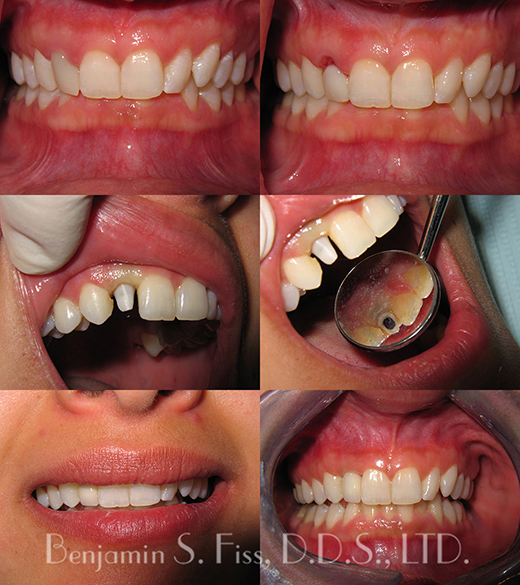The smart Trick of Dental Sense That Nobody is Talking About
The smart Trick of Dental Sense That Nobody is Talking About
Blog Article
What Does Dental Sense Do?
Table of ContentsHow Dental Sense can Save You Time, Stress, and Money.How Dental Sense can Save You Time, Stress, and Money.Top Guidelines Of Dental Sense4 Easy Facts About Dental Sense Explained
are clinical gadgets operatively dental implanted into the jaw to restore an individual's capacity to eat or their appearance. They supply assistance for artificial (fake) teeth, such as crowns, bridges, or dentures. When a tooth is lost due to injury or disease, an individual can experience problems such as fast bone loss, defective speech, or modifications to chewing patterns that cause pain.Oral implant systems contain an oral implant body and dental implant abutment and might likewise include a joint addiction screw. Professional teeth whitening. The dental implant body is surgically inserted in the jawbone in place of the tooth's root. The oral implant joint is normally attached to the implant body by the abutment fixation screw and extends via periodontals into the mouth to sustain the connected artificial teeth
(https://dental-sense.webflow.io/)Framework of The Dental Implant System picking dental implants, talk with your oral service provider concerning the possible benefits and risks, and whether you are a prospect for the treatment. Things to think about: Your general health and wellness is an essential consider determining whether you are an excellent candidate for dental implants, the length of time it will require to heal, and how long the dental implant might remain in location.
Smoking cigarettes might affect the recovery procedure and decrease the long-term success of the dental implant. The recovery process for the implant body may take several months or longer, during which time you typically have a short-lived joint in place of the tooth. the oral implant treatment: Thoroughly follow the dental hygiene directions provided to you by your oral provider.
Getting The Dental Sense To Work
Implant failing can result in the requirement for one more procedure to repair or replace the dental implant system. Restores the capacity to chew Brings back cosmetic look Helps maintain the jawbone from diminishing because of bone loss Protects the health and wellness of the bordering bone and gum tissues Assists keep nearby (neighboring) teeth secure Enhances top quality of life Damages to surrounding all-natural teeth throughout implant positioning Injury to the surrounding tissues throughout surgical procedure, such as sinus opening Injury throughout surgical treatment (for instance, fracture of surrounding jawbone) Poor feature, such as seeming like the teeth do not bite with each other generally A feeling that the tooth is loose or turning in area arising from an abutment screw loosening up Implant body failing (looseness of the implant body) as a result of systemic infection, which may be most likely in individuals with unrestrained diabetics issues as a result of local infection in bone and gums supporting the implant body due to postponed healing, which might be more probable in people that smoke Trouble cleaning the gums around the dental implant, causing poor oral hygiene Neglected gum condition Post-surgical numbness due to nerve impingement or damage Constantly inform wellness treatment service providers and imaging service technicians that you have oral implants before any type of magnetic vibration imaging (MRI) or x-ray treatments.
FDA is not familiar with any type of negative events reported for MRI or x-ray procedures with oral implants. Oral implants systems are typically made from materials that adhere to global agreement standards of the International Company for Standardization (ISO) or ASTM International. These criteria have information of what makes a safe material.

A dental implant is a structure that changes a missing out on tooth. With screw-like gadgets, the specialist inserts an implant right into the jawbone, and it acts as an anchor for an artificial tooth, called a crown.
Some Ideas on Dental Sense You Should Know
Some individuals are not qualified for dental implant surgery. It is for oral cosmetic surgeons to operate individuals with: acute illnessuncontrollable metabolic diseasebone or soft cells condition or infectionIf these concerns are settled, an individual can have the surgical procedure. In, dental doctors refrain from running on individuals with: If individuals with any one of the above undertake oral implant surgery, there is a greater risk of the implant falling short.

Oral implant surgical treatment is an individualized procedure. It's not the exact same for everybody. The following provides a basic summary of what you can anticipate your dentist, oral specialist, periodontist or prosthodontist to do: Position the dental implant surgically. Give you time to heal. Connect the post and final crown, bridge or denture.
Next off, your doctor will carefully place the oral implant right into your jaw. If your dental implant is near the front of your mouth, your dental expert will certainly make a short-lived tooth for you to use up until you heal.
The Ultimate Guide To Dental Sense
Your service provider can tell you what to expect in your situation. During the healing stage, your jawbone must fuse to the oral implant. This process, called osseointegration, is important for stability and long-lasting success. This procedure can take anywhere from three to nine months. Sometimes, it may take much longer.
When your implant heals, your dentist can affix the abutment (small adapter post) and your last repair (crown, bridge or denture). This typically takes about one hour to finish and may original site need a 2nd minor surgery. You shouldn't feel any kind of pain throughout your oral implant treatment due to the fact that your copyright will use medicine to numb your periodontals.
Report this page